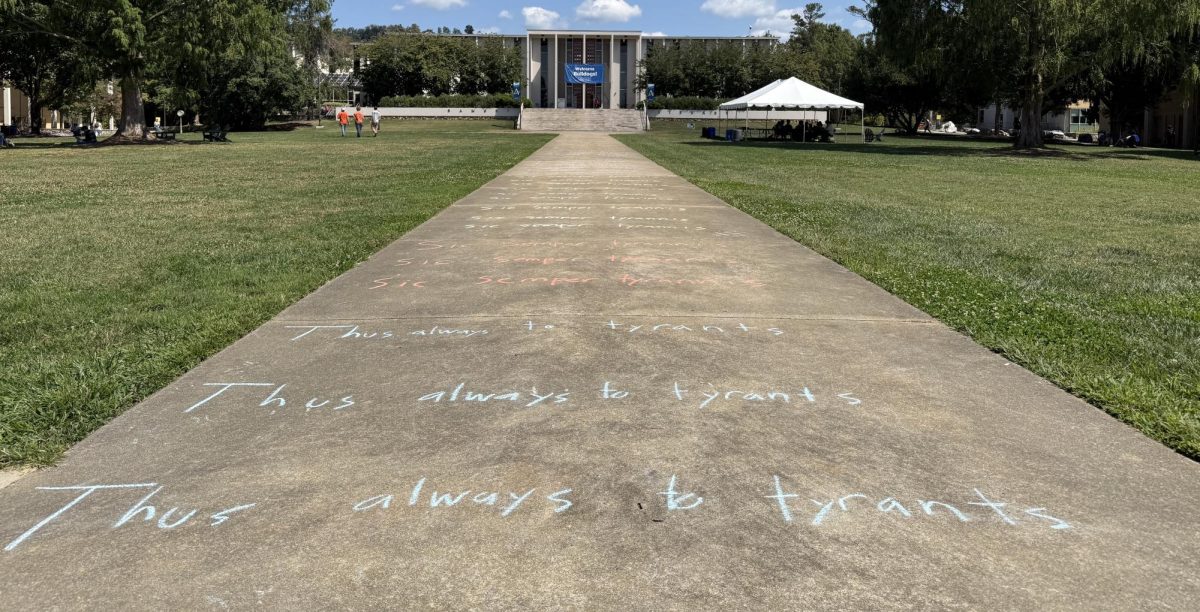By Amber Moser
Arts & Features Staff Writer
[email protected]
As long as I can remember, I have used “merry Christmas” as my holiday season greeting. I would say it to people at the store, or even strangers who held doors for me.
Much to my surprise a little over a year ago, a stranger gave me a puzzled look when I wished her a merry Christmas. What she said next changed my entire view on what I have been saying for years, as well as opened my eyes to how completely bias and inconsiderate my simple usage of a phrase was.
This stranger told me she did not celebrate Christmas. I apologized, of course, although she said I did not need to. We parted ways, but to this day I think of that woman every time I move into the holiday season.
I became more aware of what I was saying and who I was saying it to. Unbeknownst to me, this phenomenon was not new. For several years now, there has been a popular debate regarding whether or not individuals should be wishing strangers a “merry Christmas” or “happy holidays.” There are many differing opinions on this issue and all of them have valid reasoning.
According to some, such as sophomore history student Brooke Mundy, the choice of phrase might be dependent upon personal beliefs.
“I’m a Christian and believe that Jesus’ birth is the whole reason we should celebrate Christmas,” said Mundy. “When people say ‘happy holidays,’ I feel that they are leaving the Christ out of Christmas. I totally understand people saying ‘happy holidays’ if they are referencing Thanksgiving, Christmas, New Years. But for me, the whole season is Christmas time because that’s when I celebrate my savior’s birth.”
According to a survey conducted by Pew Research Center, roughly 70.6 percent of Americans identify as Christian. Looking at this data, it might seem easy to assume that Mundy’s decision is generally safe and inoffensive. While Christians make up the majority of the population, there is still 29.4 percent of people who do not identify as Christian and might not celebrate Christmas as a result. Though it might not seem like it, there are plenty of things that can be done to avoid offending these minorities.
It is actually pretty easy: avoid assuming everyone celebrates Christmas.
Senior psychology student Dehlia Zietlow makes it a point not to say “merry Christmas” to avoid excluding other celebrations and religions around the holiday season.
“Merry Christmas ignores many of the other holidays also celebrated during that time,” Zietlow said. “It assumes that everyone celebrates the same thing. Not that I think ‘merry Christmas’ is bad necessarily, but ‘happy holidays’ is a more universal and inclusive term. It covers Christmas, solstice, Hanukkah.”
Sophomore psychology student Tanna Curry is not as firm in her decision on which greeting to use.
“Whether I say ‘merry Christmas’ or ‘happy holidays’ depends on the situation,” said Curry. “Or who I am talking to.”
Curry’s idea is not a bad one. If I am around my family or friends who I know for a fact are Christians who celebrate the Christmas holidays, I’m pretty guilty of saying “merry Christmas” most of the time. However, if I have even an inkling of doubt about someone’s beliefs, I have made the conscious decision to bid them ‘happy holidays.’
While this debate might seem pointless to some, it is in fact important. We are living in a very unstable time where many minorities are still experiencing prejudices and inappropriate behaviors directed toward them simply because of how they look, or what they believe. While changing your holiday greeting might not seem like much, it can at least provide some form of inclusivity and perhaps even help bring attention the fact that the majority is not the only party that exists.
With these things in mind, it is my hope people will move into the holiday season with a more inclusive and respectable outlook.
Categories:
“Happy holidays” is more inclusive than “merry Christmas”
November 28, 2017
0
Tags:
More to Discover


![Brooke Pedersen [second from the right] and Luis Reyes [right] hold banners during the Wrap The Woods event.](https://thebluebanner.net/wp-content/uploads/2025/09/ELIZABETH_PRITCHITT_IMG_3470-1200x804.jpg)















